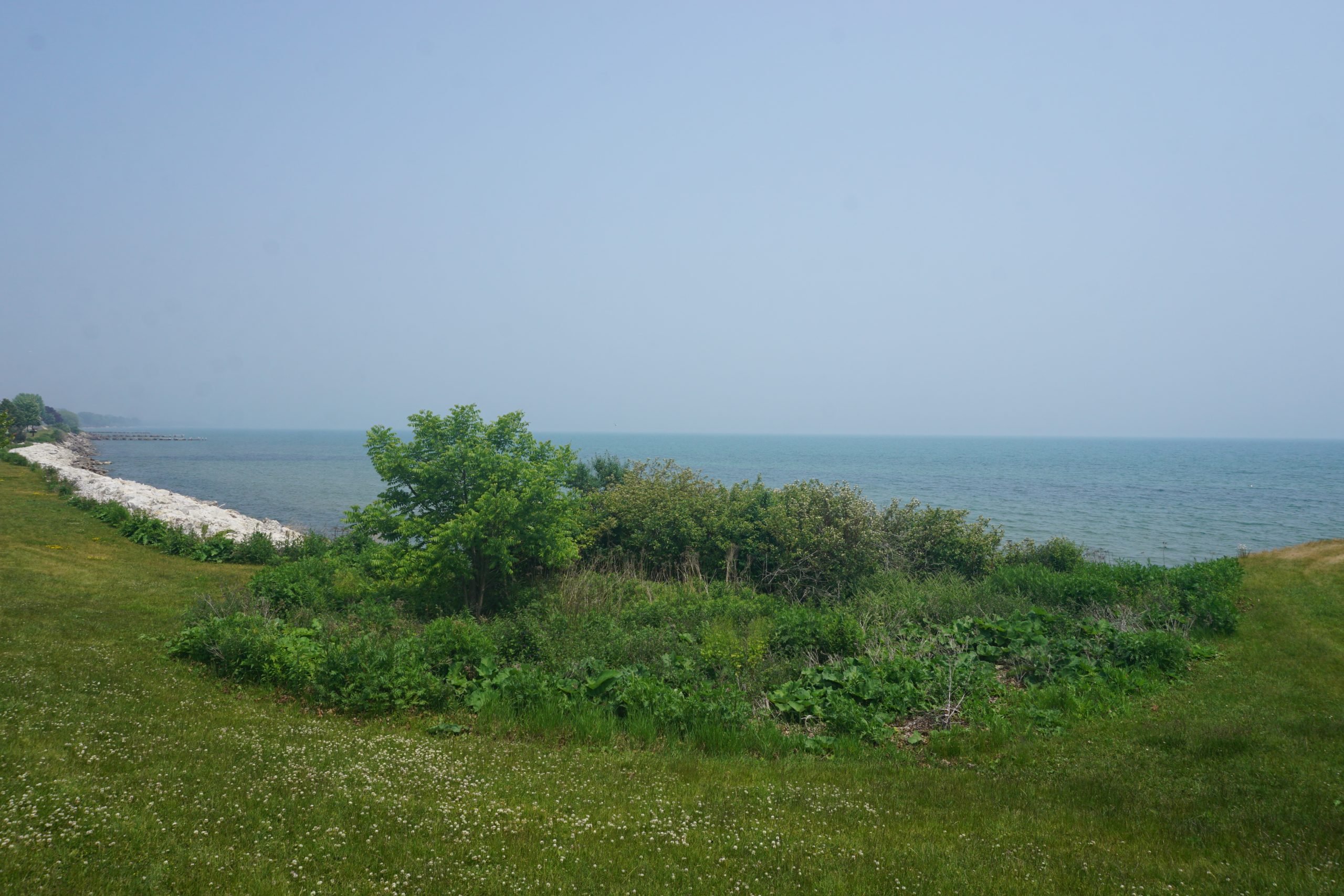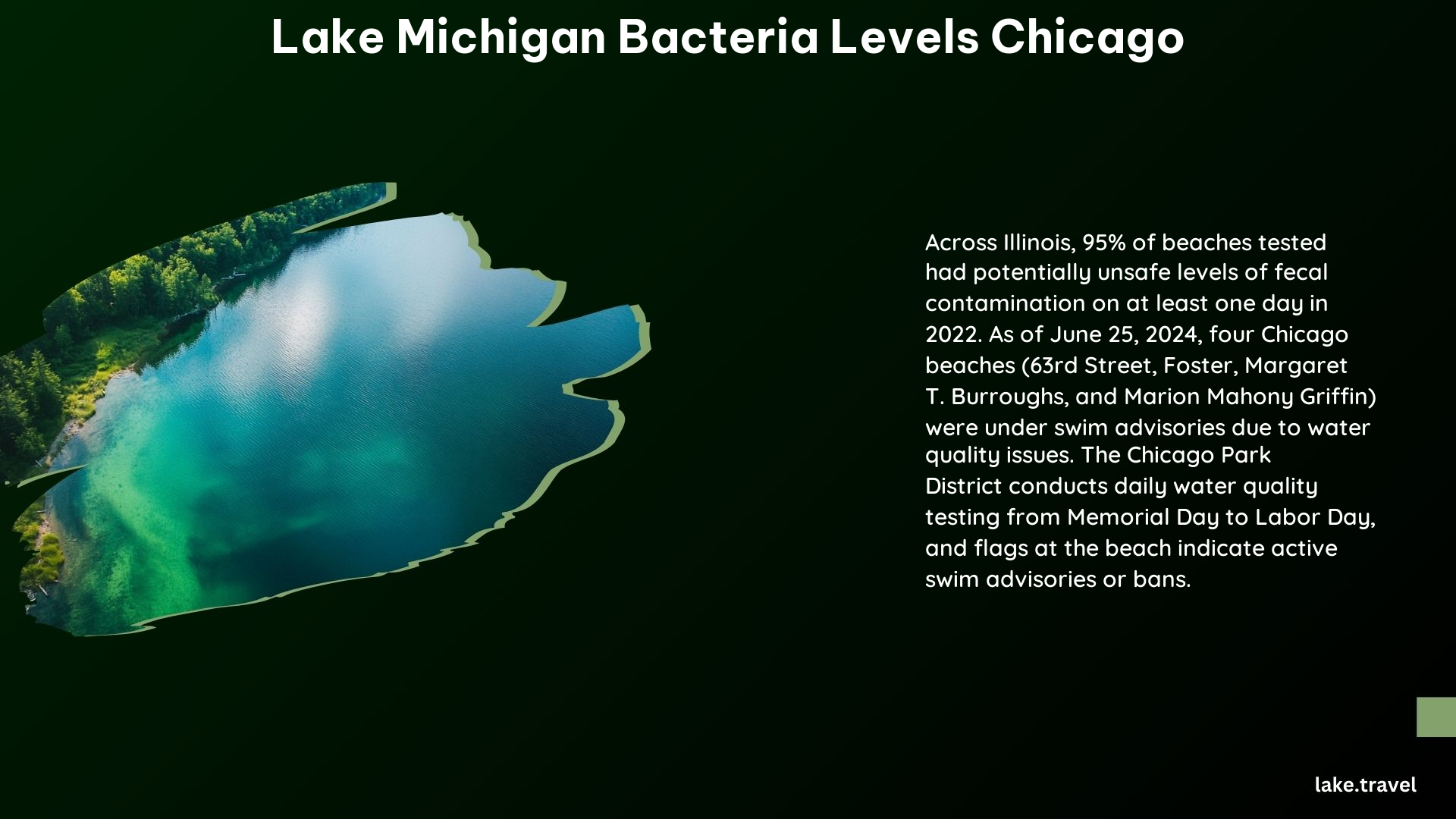As a lakes touring enthusiast, it’s crucial to stay informed about the water quality and bacteria levels at the beaches you plan to visit. In Chicago, the shores of Lake Michigan are a popular destination for swimmers, sunbathers, and water sports enthusiasts. However, the city’s urban environment can sometimes lead to elevated bacteria levels, posing a potential health risk. In this comprehensive guide, we’ll explore the current state of Lake Michigan’s bacteria levels in Chicago, the measures taken to monitor and address the issue, and the steps you can take to ensure a safe and enjoyable experience at the beach.
Current Bacteria Levels in Lake Michigan, Chicago

As of June 25, 2024, four beaches in Chicago were under swim advisories due to water quality issues: 63rd Street, Foster, Margaret T. Burroughs, and Marion Mahony Griffin beaches. These advisories were issued by the Chicago Park District based on elevated levels of E. coli, a bacteria that can indicate the presence of fecal contamination.
Swim Advisories and Closures

The Chicago Park District closely monitors the water quality at the city’s beaches and issues swim advisories or closures when necessary. These advisories are typically posted on the district’s website and indicated by flags at the beach: yellow for caution and red for a swim ban. It’s essential for visitors to check the beach conditions before heading out to ensure a safe and enjoyable experience.
Water Sampling and Testing
To maintain water quality, the Chicago Park District collects daily water samples from the Friday of Memorial Day weekend until Labor Day. These samples are tested for Enterococci bacteria, which are naturally occurring but can also indicate the presence of fecal contamination. In addition to traditional testing methods, the district has also implemented a new approach using rapid DNA testing to identify high-risk beaches and predict contamination levels more accurately.
Innovative Approach to Water Quality Forecasting
The new approach to water quality forecasting in Chicago involves rapid DNA testing and data exploration to identify high-risk beaches and predict contamination levels. This method is cost-effective and provides more accurate notifications to the public, allowing them to make informed decisions about when and where to swim.
Factors Contributing to High Bacteria Levels
High bacteria levels in Lake Michigan, Chicago, are often linked to a variety of factors, including urban runoff, sewage overflows, and factory farms. These sources can introduce pathogens that threaten public health. Additionally, research suggests a strong link between high Enterococci levels and fecal droppings from ring-billed gulls, a common sight along the city’s lakefront.
Importance of Checking Water Conditions
Before heading to the beach, it’s crucial for visitors to check for any swim advisories or bans. The public can access up-to-date information on beach conditions on the Chicago Park District’s website and look for flags at the beach indicating the current water quality status.
Long-Term Solutions for Clean Water
To address the issue of beach pollution in Lake Michigan, Chicago is exploring long-term solutions that include repairing sewage systems, preventing runoff pollution, and increasing public investment in natural and green infrastructure features. These measures can help reduce the sources of contamination and improve the overall water quality for the benefit of both residents and visitors.
References
- https://chicago.github.io/clear-water/
- https://www.chicagoparkdistrict.com/about-us/faq/beaches-faq
- https://data.cityofchicago.org/Parks-Recreation/Beach-E-coli-Predictions/xvsz-3xcj
- https://environmentamerica.org/illinois/center/articles/check-chicagos-beach-advisories-before-you-swim/
- https://www.chicagoparkdistrict.com/parks-facilities/beaches
